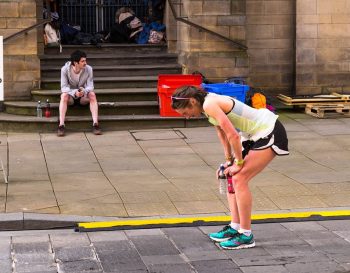 What’s YOUR thing? City to Surf, a fun run, a triathlon or marathon, Oxfam Trail Blazer, ocean swims, trekking, coastal walking or bushwalking in the Blue Mountains, football, tennis, netball or basketball, or working out at the gym.
What’s YOUR thing? City to Surf, a fun run, a triathlon or marathon, Oxfam Trail Blazer, ocean swims, trekking, coastal walking or bushwalking in the Blue Mountains, football, tennis, netball or basketball, or working out at the gym.
There’s no need to be a drug cheat or take a banned substance because it’s easy to enhance your performance and recovery naturally. Regardless of your choice of physical activity the right sports nutrition and key natural performance enhancing supplements can support your training, performance, and recovery. Enhancing your performance naturally will energise you, before and during a workout, increase muscular endurance and mental focus, while instilling calmness of the mind for better reflexes and timing. Here are some great tips to help you achieve your training goals, pre-event preparation, manage injuries and post-event recovery.
Sports Nutrition for Athletes and Diet
Sorry, but I can’t resist saying it, “we are what we eat”! A strong, healthy active body needs a good healthy well-balanced diet of proteins, healthy fats, whole grains, nuts, seeds, sprouts and a wide variety of fruits and vegetables. Proper fuelling of the body prior to, during, and after exercise is one of the most important ways to enhance your performance and recovery.
Many athletes overemphasise macronutrients that are needed in larger amounts ie carbs, protein, and fats. They focus too little on foods rich in micronutrients, needed in smaller amounts relative to macronutrients, and enzymes that regulate bodily functions and keep our cells healthy. The term micronutrient is used to describe vitamins and minerals in general and these can greatly impact performance and recovery. The micronutrient content of each food is different, so it’s best to eat a variety of foods to get enough vitamins and minerals as each vitamin and mineral has a specific role in your body and an adequate intake of all micronutrients is necessary for optimal health, strength and recovery.
Protein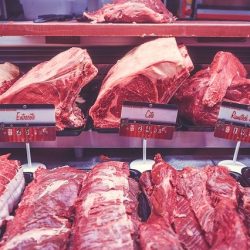
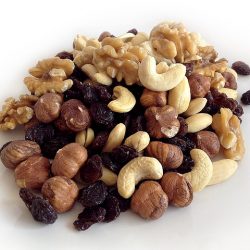 Without a doubt, Vegan or not, protein is number one macronutrient, best food for athletes performance. Protein plays an important role in an athlete’s diet as it helps repair and strengthen muscle tissue “Higher dietary protein intakes are anabolic which means they are muscle building, not just for athletes, but for all people,” says Loren Cordain, PhD, professor of exercise physiology at Colorado State University, Fort Collins, and co-author of Paleo Diet for Athletes. That’s because muscle consists mostly of protein, a word derived from the Greek proteios, meaning “of greatest importance.”
Without a doubt, Vegan or not, protein is number one macronutrient, best food for athletes performance. Protein plays an important role in an athlete’s diet as it helps repair and strengthen muscle tissue “Higher dietary protein intakes are anabolic which means they are muscle building, not just for athletes, but for all people,” says Loren Cordain, PhD, professor of exercise physiology at Colorado State University, Fort Collins, and co-author of Paleo Diet for Athletes. That’s because muscle consists mostly of protein, a word derived from the Greek proteios, meaning “of greatest importance.”
The average person should consume about 1 gram of protein per kilogram of body weight. That’s not the weight of the protein-rich food but the protein content of the food. Active people who are gym training, athletes and those training for events may have greater needs and can consume extra serves of protein especially after training to support muscle building and recovery
While athletes’ protein needs may be greater than that of non-athletes, they’re not as high as commonly perceived. The Academy of Nutrition and Dietetics, Dietitians of Canada and the American College of Sports Medicine recommend 1.2 to 2.0 grams of protein per kilogram of body weight per day for athletes, depending on training.
Protein intake should be spaced throughout the day and after workouts. When determining protein requirements for athletes, it’s important to look at the athlete’s overall diet. Athletes who consume diets adequate in carbohydrate and fat end up using less protein for energy than those who consume a higher protein diet. This means that protein can go toward building and maintaining lean body mass. Athletes need to ensure that they also are meeting needs for carbs and fat, not just protein. Because they are building muscle, power athletes require a higher level of protein consumption than endurance athletes.
Muscle growth happens only when exercise and diet are combined.
Are Powders and Dietary Supplements for Exercise & Athletic Performance Needed?
Most athletes can get the recommended amount of protein through food alone, without the use of supplements. Protein powders and supplements are great for convenience, but are not necessary, even for elite athletic performance. For example, protein powders can be useful when athletes need immediate protein right after a workout and don’t have time for a meal.
Protein powders to be mixed with water or other liquids. Look for whey (derived from dairy) or vegetable-source proteins such as soy, algae, and hemp, as well as multi-amino-acid supplements.
Here are examples of the protein content of foods
1 egg = 10g of protein
100g of chicken, fish or beef = 20g protein
small can of tuna = 10g protein
100g cheese = 10g protein
handful of nuts/seeds = 10g protein
1 cup cooked quinoa/buckwheat/chia seeds = 15g protein
1 cup cooked legumes ie beans, lentils, chickpeas = 15g protein
½ cup of coconut or dairy yoghurt = 10g protein
But what do Plant-based/ Vegan Athletes Eat?
There are many successful Vegan athletes. Five-time Wimbledon champion Novak Djokovic says he feels ‘healthier overall’ on a plant-based diet.
“Eating Vegan makes me more aware of my body on the court….more alert. I removed toxins from my body, and with them went all the inflammation and other things that were messing up my energy levels. As an athlete, the most important thing is to keep your energy levels consistent- especially as a tennis player, where you’re alone on the court for a best of 5 match. When playing for 3,4 5 hours straight, you need the right fuel… and for me the right fuel is plant based” – Novak Djokovic. livekindly.com
“I’m just healthier overall, I have more energy, I sleep better, as an athlete I recover better, I have better concentration on the court, I run faster.”
Nutritional considerations for a vegan athlete are the same as any other athlete. It’s still about getting enough Protein, good fats and carbohydrates and enough of the key micro-nutrients especially omega-3s, iron, zinc, calcium, vitamin D, and B12 but from plant based sources. Foods high in these nutritional values include fruits, vegetables, whole grains, seeds, nuts, and beans. Some nutrients such as B12 must be supplemented or eaten in fortified foods.
The recommendation for athletes and the general public is to have 12-15% of your daily calories be from protein-adjusting calories (and therefore protein) based on physical activity.
Energy /Fuel
In carbohydrates, there are 4 calories per gram.
In proteins, there are 4 calories per gram.
And in lipids, there are 9 calories per gram.
This means that if you look at a food label and it lists 10 grams of carbohydrates, 0 grams of protein, and 0 grams of fat, that food would contain 40 calories.
Build Testosterone Naturally
Mineral performance enhancers – Zinc, Vitamin D3 and Magnesium
It is important to note that if we are aiming to build strength and muscle we need to support testosterone production. Both men and women need healthy levels of testosterone. Apart from exercising, we need adequate minerals especially Zinc, Vitamin D and Magnesium to build testosterone.
Of course we need to eat a diet rich in these minerals but when that is difficult or we have greater needs we can take a well-chosen supplement.
Zinc
Zinc also boosts testosterone in athletes and those who are deficient in zinc. Having a zinc deficiency can lead to low testosterone. Exactly why a lack of zinc impacts testosterone levels isn’t fully understood. The mineral may affect the cells in the testes that produce testosterone.
Because your body can’t store zinc, you need to take it in every day. On average if you are over the age of 19, the recommended daily amount of zinc is 11 milligrams.
Foods that have significant amounts of zinc include, oysters, beef, crab, fortified cereals and breads, pork, beans, chicken, yogurt, nuts, oatmeal, dietary supplements.
Chat to a practitioner at The Harbord Homeopathic Clinic to see which Zinc supplement is best for you – (Meta zinc and vitamin C; Zinc drink; zinc maintain; zinc plus?)
Vitamin D3
Vitamin D3 supplements may boost testosterone levels, especially in the elderly and people who have low blood levels of vitamin D. To boost testosterone and reap the other benefits of vitamin D, try to get regular exposure to sunlight or take around 3,000 IU of a vitamin D3 supplement daily.
Magnesium
Magnesium supplementation can help return testosterone levels to normal if the cause of the decrease is a deficiency.
One study in the journal Biological Trace Element Research found that taking supplements for at least 1 month might increase testosterone in all people. The report added that people who exercise would see a more significant increase in testosterone levels than those who are not active.
It is possible to correct both magnesium and zinc deficiency through diet. Magnesium-rich foods include whole grains and dark leafy greens. Zinc is also an ingredient in dark greens, flax seeds, and pumpkin seeds.
What should I eat before a big training session or event?
So you have been doing really well exercising and training regularly. And, you are supporting this with a balanced and nutritious diet that meets your energy requirements, strength building, and recovery. What should you do, before that training session or event? Here is a straight forward nutrition plan for athletes before an event:
- Eat a high quality meal the night before which includes 20 to 30 grams of protein, salad or vegetables and some complex carbohydrates like brown rice, whole grain noodles or pasta – You now built up a nice 60-90 minute reservoir of premium muscle glycogen, the first fuel your body will use when the event begins
- Get an adequate amount of sleep
- Eat a 200-400 calorie pre training or event meal comprised of complex carbohydrates, perhaps a small amount of protein, and little or no fibre or fat 3 hours before you start. Choices could include steel cut oats/healthy muesli/chia pudding with fruit, milk, hemp seeds, crushed nuts, dried fruit and yoghurt. The goal of the pre training or event meal is to top off your liver glycogen, which has been depleted during your sleep. You can’t add anything to muscle glycogen stores at this time, you’ll just be topping off liver glycogen stores
- If you can’t eat 3 hours before the training or event, have 100-200 calories of easily digested fuel 5-10 minutes prior. Good examples of this are – fruit and cheese or yogurt, porridge with fruit and milk or yogurt, toast/pancakes/rice cakes/sandwiches with nut butters, avocado and/or honey, home made trail mix, coconut water/milk fruit smoothies.
Do you know what happens when you eat too much within three hours of exercise? Your muscle glycogen stores get burned much more rapidly . . . definitely not performance-enhancing!
What should I eat during a long event or marathon?
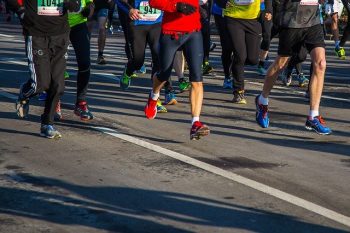 Food for stamina and endurance
Food for stamina and endurance
When you exercise, your body can pull fuel from a few places, including your adipose tissue through the breakdown of fat, muscle mass through the breakdown of protein, and carbs through the breakdown of glucose or blood sugar, which is also stored in muscle and liver cells as glycogen.
When your exertion level is low, or when you’re training in a lower heart rate zone, your body burns a greater percentage of fat than carbs as fuel. But as the intensity of your workout increases, so too does your body’s reliance on carbs for energy. If you plan on exerting any real effort, or if you’re planning on training for more than a couple of hours, you’re probably better off re fuelling with carbs as your body burns through its glycogen stores.
Glycogen is basically a back-up blood sugar supply that is readily converted back to glucose for use as energy. Liver glycogen can be diffused throughout your body, including your muscles, but muscle glycogen works only for the specific muscle in which it’s stored.
When your glycogen stores are completely topped off, you should have about 90 to 120 minutes worth of fuel with which to work. After that, you “bonk” or “hit the wall.” Where even the simplest task was an epic challenge, that’s bonking. Technically, you can still function at that point, as you still have fat stores and lean mass to tap into, but you won’t perform as well. During your event, it’s a good idea to start feeding about 30 minutes after you begin instead of waiting for the first hints of fatigue to set in.
We can only absorb about 360 calories of carbs an hour, which is equivalent to 90 grams, since there are four calories in a gram of carbohydrates. Anything that tastes good and consists primarily of carbs will probably work. You want to absorb those sugars fast, so high-glycemic foods (i.e., those that raise blood glucose levels quickly) are great in this situation. Some examples include bananas, melons, other low-fibre fruit, dried fruits, fruit juice, healthy electrolyte drinks, energy balls, banana bread, mini fruit muffins.
What do I eat after an event or big training session?
Post-workout and event meals
It’s really important to remember to replenish your body with adequate amounts of high quality carbohydrates and protein in a 3:1 ratio as soon as possible after each and every one of your workouts. This is especially important after a longer event.
After your workout, your body tries to rebuild its glycogen stores and repair and regrow those muscle proteins and stimulate the growth of new muscle. Studies have shown that ingesting 20–40 grams of protein seems to maximize the body’s ability to recover after exercise. Consuming adequate carbohydrates, eg 60g – 120g helps replenish the glycogen stores used as fuel. Endurance athletes need more carbohydrates than a bodybuilder. Although the timing does not need to be exact, many experts recommend eating your post-workout meal within 45 minutes. Choosing easily digested foods will promote faster nutrient absorption.
Here are a few examples of quick and easy meals to eat after your workout or event:
- Grilled chicken with roasted vegetables.
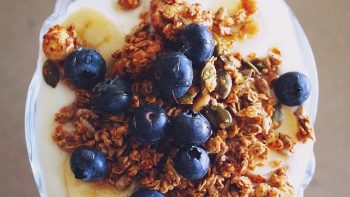
- Egg omelette with avocado spread on toast.
- Salmon with sweet potato.
- Tuna salad sandwich on whole grain bread.
- Tuna and whole grain crackers.
- Oatmeal, whey protein, banana and almonds.
- Cottage cheese and fruits.
- Pita bread and hummus.
- Rice crackers and peanut butter.
- Whole grain toast and almond butter.
- Cereal and milk.
- Yogurt, berries and granola.
- Protein shake and banana.
- Quinoa bowl with berries and pecans/ or roast veges
Blueberry Banana Recovery Smoothie
Makes 1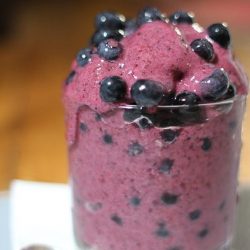
¼ – ½ cup coconut water or your choice of milk
½ cup yogurt (organic dairy, Greek or coconut)
¼ cup rolled organic steel cut oats
1 scoop vanilla protein powder
1 tablespoon hemp seeds
1 tablespoon avocado
1 banana
1/2 cup blueberries (fresh or frozen)
1 tablespoon of MCT oil (optional)
Add ingredients to a blender and blend until smooth. Pour into a chilled glass and enjoy!
Water and hydration
It is really important to drink plenty of water before and after your workout.
When you are properly hydrated, this ensures the optimal internal environment for your body to maximize results. During exercise, you lose water and electrolytes through sweat. Replenishing these after a workout can help with recovery and performance. Depending on the intensity of your workout, water or electrolyte drinks are recommended to replenish fluid losses.
Alkalising
For years, keen runners have sworn that taking a spoonful of bicarbonate of soda (baking soda) helps them to keep going for longer. You can alkalise your body and improve your performance and recovery by doing the following:
- Drink lots of water
- Deep breathing and yoga
- Swap coffee for green and herbal teas
- Eliminate sugar and replace with honey or stevia
- Eat lots of salads and raw foods, especially sprouts and add greens to every meal.
- Sip squeezed lemon juice in your water and drink green juices and smoothies.
- Chew each mouthful 20 to 40 times as your saliva is alkaline
- Enjoy an Epsom salts bath
- Get lots of good quality sleep
Natural sports performance enhancing supplements
Plenty of sports nutrition supplements can enhance your athletic prowess—not by working as stimulants, but rather by tweaking your biochemistry to boost energy levels, improve performance, and build muscle, as well as aid recovery.
When it comes to energy and stamina, think in terms of mitochondria. All of your body’s cells, but especially muscle cells, contain these specialized structures that break down carbs and fats for energy. Coenzyme Q10 (coQ10), L-carnitine, and the B-complex vitamins help convert food molecules to adenosine triphosphate (ATP), a molecule that carries the chemical energy produced in mitochondria. Later on, creatine helps cells recycle and reuse ATP.
Also, recent studies on the amino acid beta-alanine show that it can significantly boost athletic endurance.
Dose: 100 mg coQ10; 1,000 mg L-carnitine; a B-complex supplement; 5 g creatine; or 6 g beta-alanine daily.
Injury relief and Natural Anti-inflammatories
Intense exercise can lead to inflammatory injuries, including muscle strains. Omega-3s are known for their anti-inflammatory and anti-pain benefits; 15 years ago the Danish Olympic team began using a combination of omega-3 fish oils and gamma-linolenic acid (GLA) to reduce inflammation in injured athletes and speed healing. The same regimen can also help weekend warriors suffering from tendonitis.
Dose: About 700 mg omega-3s and 700 mg GLA daily.
Eat lots of these top 6 anti-inflammatory foods
- Leafy Green vegetable – rich in anti inflammatory flavonoids
- Blueberries – high in the anti inflammatory antioxidant Quercetin
- Pineapples – high in the anti inflammatory digestive enzyme Bromelain
- Wild caught Salmon – rich in anti inflammatory Omega 3s
- Chia seeds and Flax seeds – rich in anti inflammatory Omega 3s and great for Vegans
- Turmeric- anti inflammatory spice containing Curcumins
Curcumin, a powerful natural anti-inflammatory, also appears to reduce post-exercise muscle soreness and stress
Other natural anti-inflammatory and healing treatments
Whether you have over done it or injured yourself here are a few more examples of natural treatments available to reduce pain, inflammation, and promote healing:
- Arnica pillules, tablets/cream/spray
- Homeopathic Ruta, Hypericum, Rhus tox, Ledum, Bryonia
- Traumeel tablets/gel/cream
- PEA- Palmitoyethanolamide powder/tablets/capsules/creams
- Formulas containing Curcumin, Ginger, Bromelain, Boswellia, Catsclaw
- Omega-3 and Omega-6 fatty acids /fish oils/ oil blends/Flaxseed oil
- Glucosamine and Chondroitin supplements
- SAM-e supplements
- Antioxidants Vitamins A,C,E and Zinc
- Magnesium – supplements/topical oils and sprays/ Epsom salts baths
- Ginger tea/supplements and compresses
- Herbal creams/balms containing – armica, hypericum, devils claw, peppermint oil, capsaicin
- Reduce inflammation with flax seeds
- Improve endurance with beet juice
- Beat fatigue with pumpkin seeds
- Stimulate recovery with Brazil nuts
All the best for your natural sports performance in 2020. Enjoy the supercharged sports nutrition.
- Vitamin D – “The Sunshine Vitamin” - 29/06/2022
- 20 Tips to Control Your Sugar Cravings - 06/10/2021
- Knock out that cold or flu and fast track your way back to health! - 15/06/2021
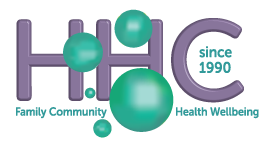


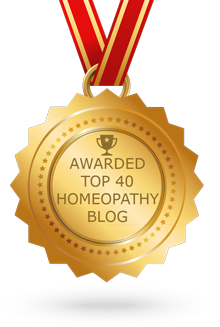
Leave a Reply